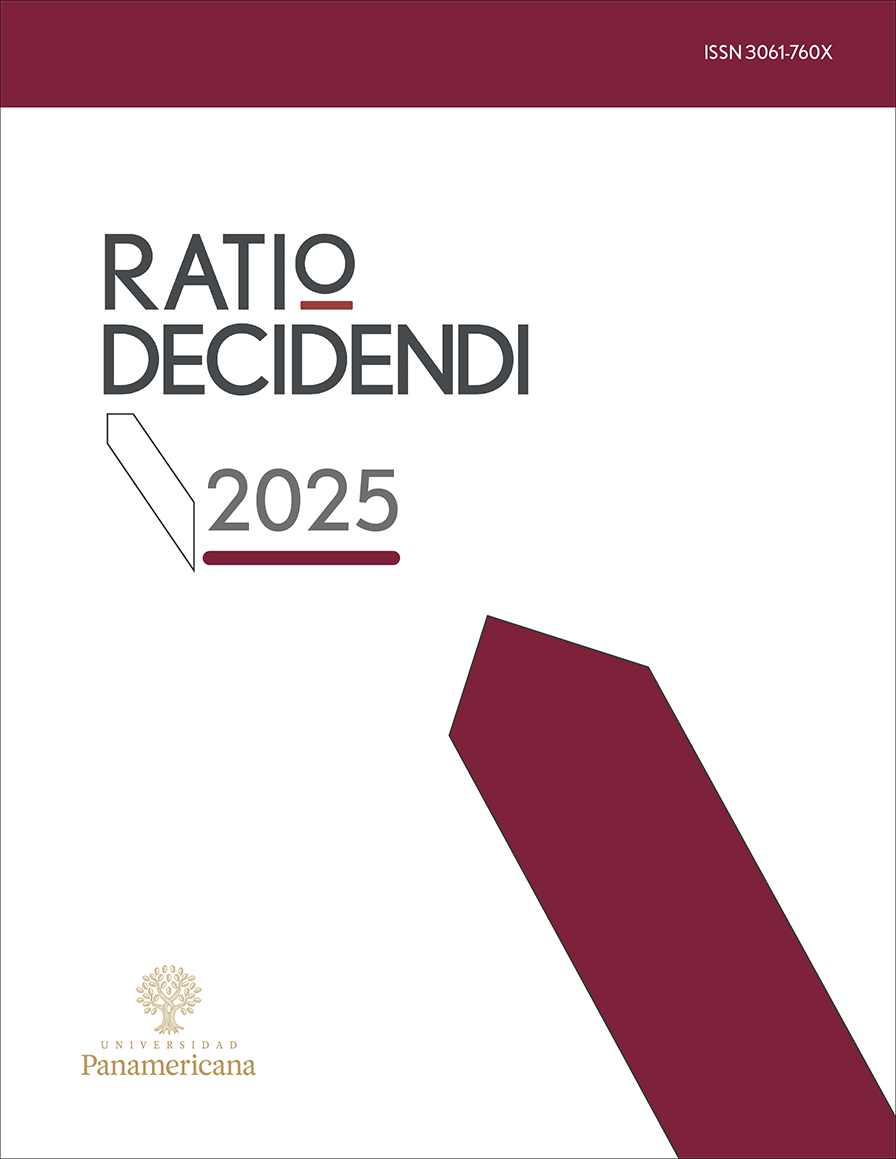The election of constitutional judges in Europe. Critical analysis of a key element for independence
Published 2025-07-15
Keywords
- Constitutional judges,
- Judicial legitimacy,
- Judicial independence,
- Judicial appointment,
- Judicial election
Copyright (c) 2025 Ratio Decidendi

This work is licensed under a Creative Commons Attribution-NonCommercial-NoDerivatives 4.0 International License.
How to Cite
Abstract
This work analyzes, from the legal-constitutional methodology, the category of election of magistrates of the European constitutional courts. To do this, we initially explain how this selection affects the independence and legitimacy of courts. In addition, we outline the difference between the proposal, appointment and election. After this we study and classify the systems according to three variables that try to provide significance to the different options. In this way, we are in a position to assess the most appropriate election system, which must be mixed, with qualified majorities, with the intervention of different departaments and with requirements that include solid legal knowledge. This theoretical approach must be completed with the practical dynamics and the reality of certain crises in Europe, which caused severe delays in the appointment and obvious risks of politicization, which must be reversed through the democratic control that citizens must exercise.
References
- Bachof, O. (1985). Jueces y Constitución. Civitas.
- Castillo-Ortiz, P. J. (2012). Guardar al defensor de la Constitución. Estudios de Progreso. Fundación Alternativas,
- Cerexhe, G., & Chidiac, M. J. (1988). El Tribunal de Arbitraje en Bélgica: una jurisdicción constitucional. Autonomies. Revista catalana de Derecho Público, 9. https://revistes.eapc.gencat.cat/index.php/rcdp/article/view/1732
- Chmielarz-Grochal, A., Laskowska, M., & Sutkowsk, J. (2018), Selección de magistrados constitucionales. Aspectos legales y políticos de la crisis de nombramiento en algunos países europeos. Estudios constitucionales, 16(2). https://ddoi.org/10.4067/S0718-52002018000200481
- Comisión de Venecia (1997). The composition of constitutional courts. https://www.venice.coe.int/webforms/documents/default.aspx?pdffile=CDL-STD(1997)020-e
- Delpérée, F. (2002). Présentation de la Cour d’Arbitrage de Belgique. Cahiers du Conseil Constitutionnel, 12. https://www.conseil-constitutionnel.fr/nouveaux-cahiers-du-conseil-constitutionnel/presentation-de-la-cour-d-arbitrage-de-belgique
- Favoreu, L. (1996), Les cours constitutionnelles. Presses Universitaires de France.
- Fernández-Rodríguez, J. J. (1997). El Tribunal de Arbitraje belga. Dereito. Revista Xurídica da Universidade de Santiago de Compostela, 6(2), 129-155. http://hdl.handle.net/10347/2666
- Fernández-Rodríguez, J. J. (2007). La justicia constitucional europea ante el siglo XXI. Tecnos.
- Fernández-Rodríguez, J. J. (2021). A vueltas con la garantía de la independencia de los tribunales constitucionales. En C. Astudillo-Reyes, & G. Eto-Cruz (coords.). Centenario de los tribunales constitucionales. Tomo I: Estudios teóricos, históricos y comparados. Thomson Reuters, pp. 205-230.
- Fernández-Rodríguez, J. J. (2024). La difícil garantía de independencia de los tribunales constitucionales. Revista dominicana de Derecho Constitucional, 6(1), 177-224. https://www.tribunalconstitucional.gob.do/consultas/revista-dominicana-de-derecho-constitucional
- Fernández-Segado, F. (2009). La justicia constitucional: una visión de Derecho comparado, tomo III. Dykinson.
- Ferreres-Comella, V. (2011). Una defensa del modelo europeo de control de constitucionalidad. Marcial Pons.
- Fromont, M. (1996), La justice constitutionnelle dans le monde. Dalloz.
- Häberle, P. (2003). La jurisdicción constitucional institucionalizada en el Estado Constitucional. En E. Ferrer-Mac-Gregor. Derecho procesal constitucional (Tomo I, cuarta edición, pp. 373-386), Porrúa.
- Kelsen, H. (1928). La garantie juridictionnelle de la Constitution (La Justice constitutionnelle). Revue de Droit Public et de la Science Politique en France et à l’etranger, pp. 197-257.
- Krzywoń, A. (2019). La justicia polaca, en manos de la europea. Agenda Pública. http://agendapublica.elpais.com/la-justicia-polaca-en-manos-de-la-europea
- Lambert, É. (1921). Le Gouvernement des juges et la lutte contre la législation sociale aux États-Unis. Marcel & Cie.
- Marañón-Gómez, R. (2024), El concepto de jurista de reconocida competencia. Comentario a la Sentencia del Tribunal Supremo 1611/2023. Asamblea. Revista parlamentaria de la Asamblea de Madrid, 46, 205-213.
- Marcou, J. (1997). Justice constitutionnelle et systèmes politiques. Presses Universitaires de Grenoble.
- Pegoraro, L. (1998), Lineamenti di giustizia costituzionale comparata. Giappichelli.
- Pegoraro, L. (2015). Giustizia costituzionale comparata. Dai modelli ai sistemi. Giappichelli.
- Rousseau, D. (1996). La justice constitutionnelle en Europe. Montchrestien.
- Rüthers B. (2020). La revolución secreta. Del estado de derecho al estado judicial. Un ensayo sobre Constitución y Método. Marcial Pons.
- Schmitt, C. (1931). Der Hüter des Verfassungs. Duncker Humblot.
- Triepel, H. (1974). Derecho público y política. Civitas.
- Tusseau, G. (2016). Les juges constitutionnelles comme autorités normatives: éléments d’une taxonomie des sentences constitutionnelles. En G. Grandjean, & J. Wildemeersch, (dirs.). Les juges: décideurs politiques ? Essais sur le pouvoir politique des juges dans l’exercice de leur fonction (pp. 160-196). Bruylant.
- Zagrebelsky, G. (1988). La giustizia costituzionale. Il Mulino.


